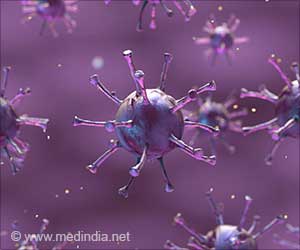The summer temperature would play an important role in preventing the drastic spread of COVID-19 virus in India.

‘The lockdown will serve its purpose and break the dreadful chain. That is what best we can do right at the moment.’





Studies by various prestigious institutions around the world reveal that various types of coronaviruses showed "marked winter seasonality". In simpler words coronaviruses are more volatile between December and April. Several virologists are hinting that by June this year, the impact of COVID-19 would be less than what it appears at present.
"Yes some scientists are talking about June theory which obviously relates to rise in temperature. I have spoken to some of our Chinese collaborators and they told us that its (COVID-19) resistance power cannot tolerate high temperature," Professor Pratyoosh Shukla, General Secretary of AMI told IANS.
"Usually all types of viruses, including SARS or Flu, have maximum impact from October to March. The reason being that temperature plays an important role in the spread of viruses," said Prof Pratyoosh Shukla.
A detailed study conducted by the Centre for Infectious Diseases, Edinburgh University, found that three types of coronaviruses obtained from patients of respiratory tract infections showed winter seasonality.
Advertisement
On the dreadful and rapid spread of COVID-19, Professor J.S. Virdi said that he has been taken aback by the unprecedented pace of this virus in spreading around the world.
"It is not settling down because it is also being transmitted by aerosol. In scientific parlance we call it droplet nuclei," Virdi told IANS, adding, "another factor is that this new virus, in comparison to the previous ones, has a larger survival time. So it cannot be easily inactivated."
Founded in 1938 and having more than 5,000 microbiologists as members, the AMI sees governments decision of invoking a nationwide 21-day lockdown as an effective measure to prevent COVID-19 from spreading into the community.
"The lockdown will serve its purpose and break the dreadful chain. That is what best we can do right at the moment. Our members, including the ones in National Institute of Virology back this decision," said Professor Pratyoosh Shukla, who heads the department of microbiology in Rohtak University.
Meanwhile President of AMI, J.S. Virdi said that soon the apex body of microbiologist (and virologists) will meet, probably through a video conferencing to review and discuss the situation relating to the spread of COVID-19 in India.
--IANS
ds/in
Source-IANS















